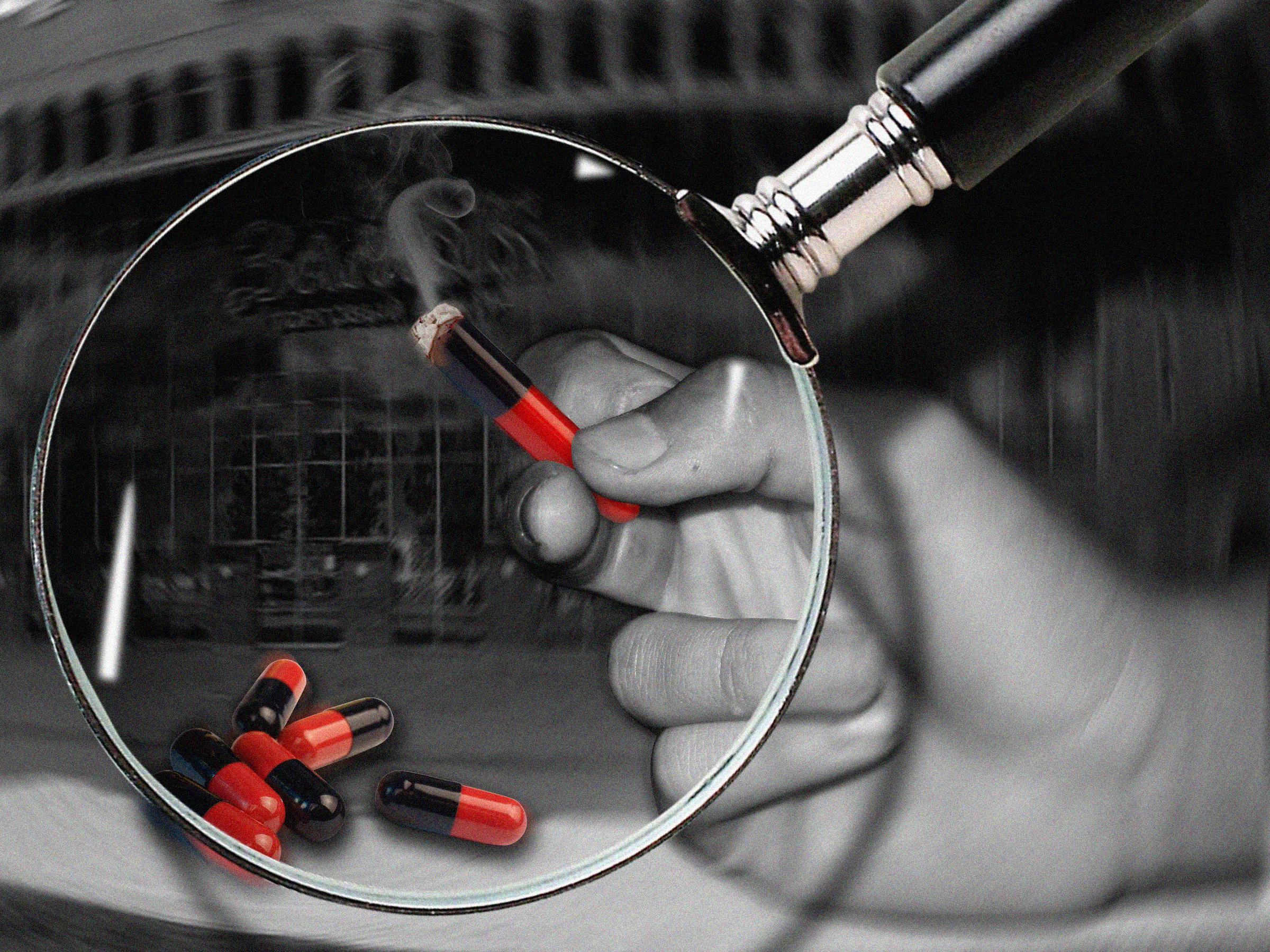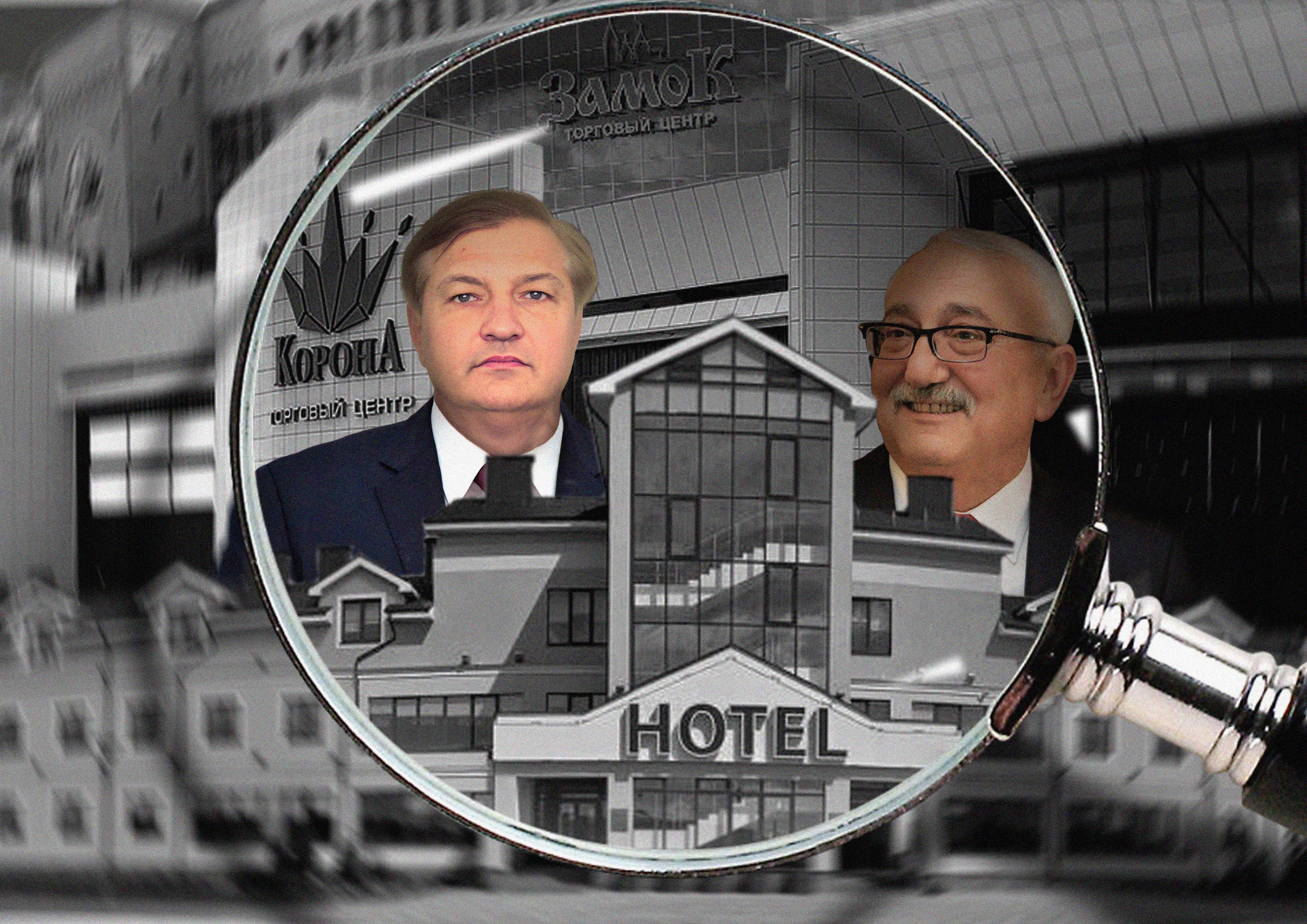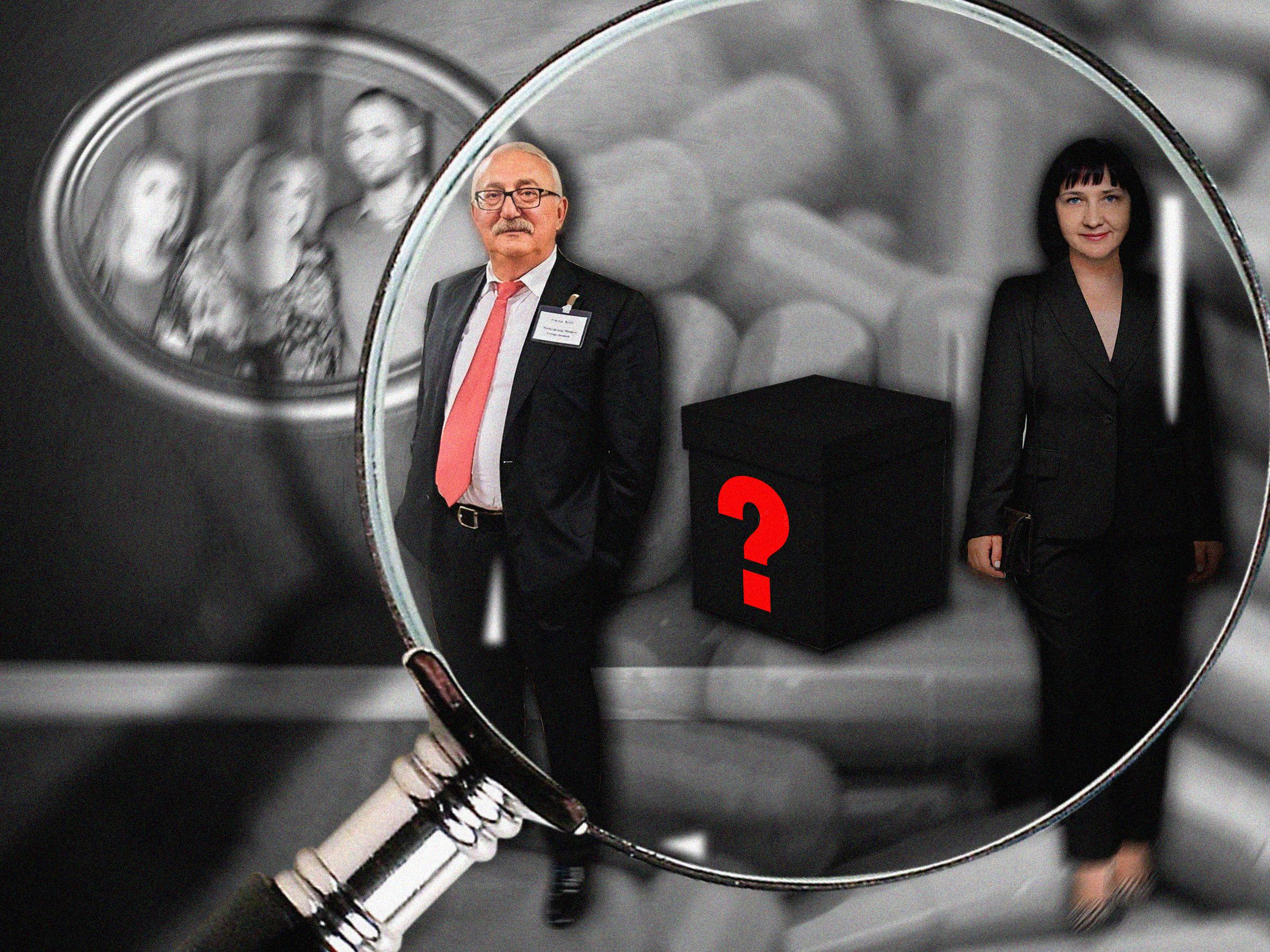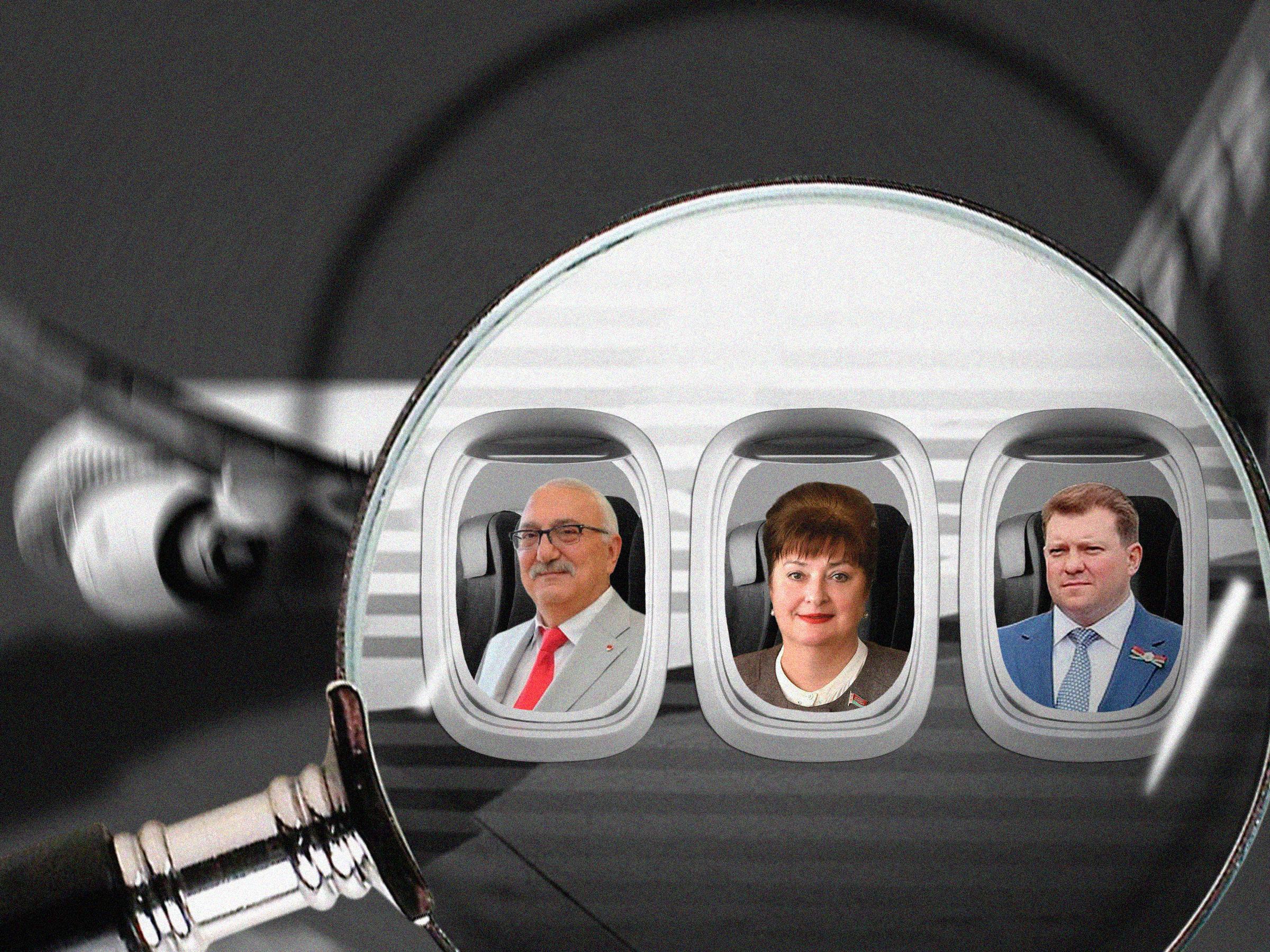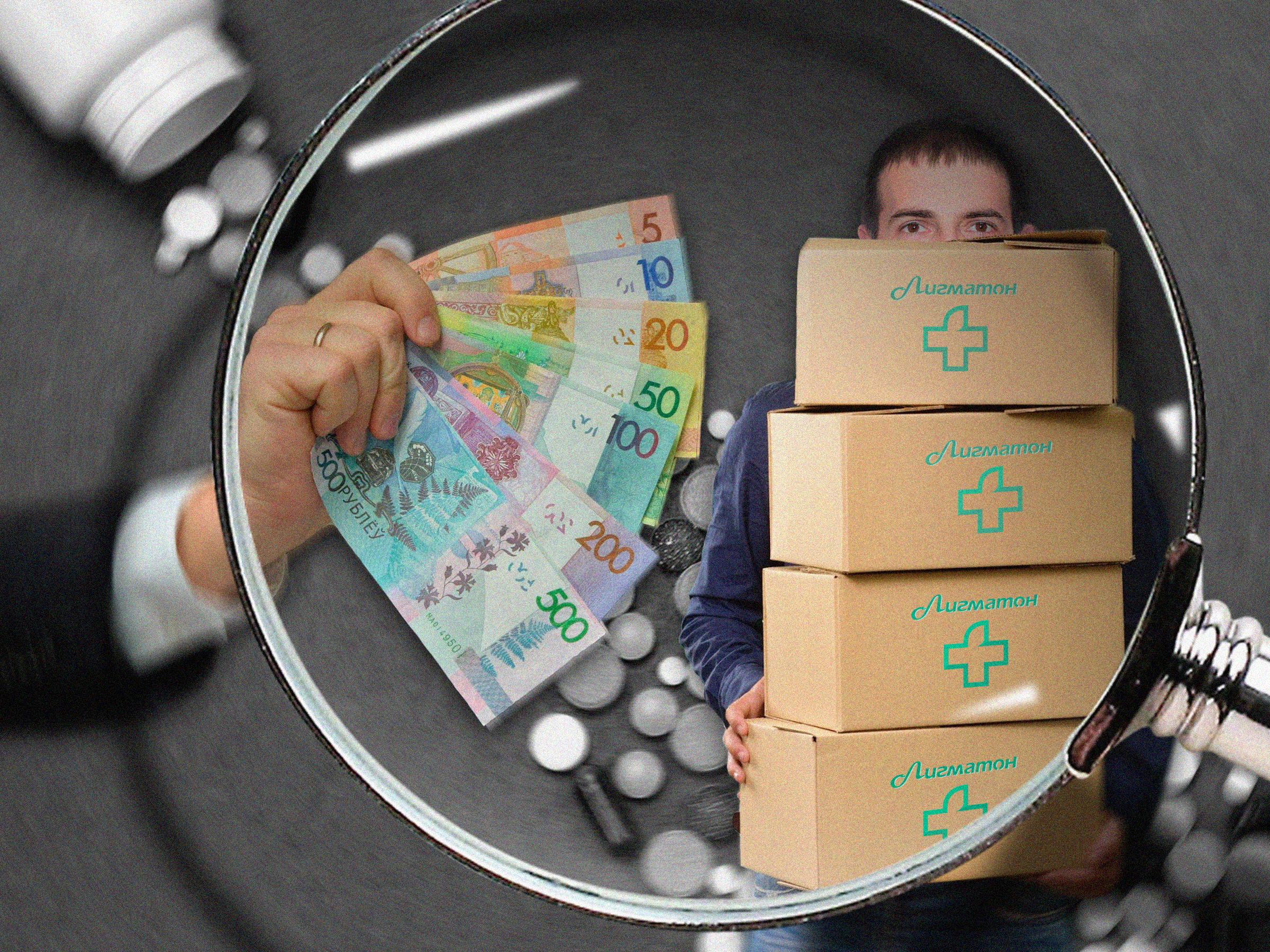The BIC partnered with the Medical Solidarity Foundation BYMEDSOL to create this article and heavily relied on the support of the activist group CyberPartisans.
Drug prices in Belarus grew by 13.36 percent in 2023, twice the rate of inflation. The Ministry of Health blames Western economic sanctions, despite the fact those restrictions do not apply to medical drugs. The official explanation is that “logistics chains have broken down due to sanctions measures”.
In Russia, some drugs are significantly cheaper despite the sanctions. The purchase of just three drug items mentioned below from a Russian pharmacy instead of from the Belarus company Ligmaton would have saved the Belarusian public purse almost 5.7 million Belarusian rubles (about $1.76 million) in 2022-2023.
That is enough money can be used to buy 130 Chinese respiratory care units. Or nearly 13,000 wheelchairs. Or 228,000 packs of insulin.
Wholesale is pricier than retail
Among the drugs purchased by the Belarus government from Ligmaton is the botulinum toxin Dysport. It is also known as “beauty injection” or “French Botox”. Dysport is used not only in cosmetics, but also in the treatment of painful migraine attacks that can last for days.
“It is the feeling of extreme pain, just looking at something is unbearable, sounds irritate you,” journalist Volha Starastsina, who has suffered from migraines for many years, told BIC. “One half of your head feels as if a stake has been driven into your head, into your eye. When attempting to get up or move, the pain is intense and seems to radiate throughout the body. It’s impossible to think or perceive information. Life just freezes on days like this for me.”
In February 2023, the government signed a contract with Ligmaton for more than 2,000 packs of Dysport at a cost of almost 1.8 million Belarusian rubles (about $558,000). This information can be found on the website of RUP Belfarmatsia, the largest pharmacy chain in Belarus. The supplier was selected through a single-source procurement process.
This does not mean only one firm was offered the contract. However, this opaque procedure potentially opens the door to manipulation.
“Single-source procurements are the most obscure. The laws in Belarus do not fully specify or regulate them adequately. There are too many of them. They are obscure, you can’t file a complaint about such schemes. In jurisprudence, the concept of ‘impracticability’ exists. Even if a violation is detected after an action, such as receiving medicine or transferring money, it is not reasonable to roll it back. Even if violations are found. Therefore, this is the most corrupt layer of procurement, and it’s significant,” said a lawyer from opentenders.tech, a project that specializes in investigating violations and corruption in public procurement, in an interview with BIC.
The state purchased the drug Dysport from Ligmaton at 885.5 Belarusian rubles (about $274) per bottle. In mid-January 2024, this same bottle could be purchased at Russian pharmacies for just 16,200 Russian rubles (577 Belarusian rubles or about $179). In Ukrainian pharmacies, the drug costs one-third less – approximately 640 Belarusian rubles. (Prices are based on the exchange rate as of January 12, 2024.)
Wholesale prices for Dysport in Russia and Ukraine are 10-20% lower, based on tender results in these countries. We compared retail prices of these and other drugs in Russia and Ukraine as of January 12, 2024, with the cost of their purchase by the Belarusian state about a year ago. Although this method is not entirely accurate, the prices of medicines in Russian and Ukrainian pharmacies have changed insignificantly, within 10%, over this period.
Belarus purchased other drugs from Ligmaton that were more expensive than those sold in Russian and Ukrainian pharmacies. Spiriva Respimat, used for breathing problems, was purchased for about 10 million Belarusian rubles in September 2022 and again in April 2023. The average price per 60-dose inhaler was about 135 Belarusian rubles. On January 12, Spiriva Respimat cost about 105 Belarusian rubles in Ukraine pharmacies. In Russia, its retail price is 67 Belarusian rubles.
Another government purchase from Ligmaton is Diphereline 3.75 mg. The state signed a contract in June 2023 at 238 Belarusian rubles per bottle. In January 2024, pharmacies in Ukraine sold it for an average of 167 Belarusian rubles, while in Russia the price was 181 Belarusian rubles.
Oligarchs' family secrets
Ligmaton was established in 1996. In 1999, the company obtained a license for wholesale distribution drugs and medical supplies. It also owns a retail chain of 19 pharmacies.
The largest shareholder Galina Petrovitch has been the director of Ligmaton since 2001. [*] [*] [*]
From 2004 to 2020, with a two-year break, a woman with the same last name, Irina Petrovitch, co-owned the company. CyberPartisans provided BIC with passport information indicating she is the mother of both the current owner of Ligmaton and Victor Petrovich, director and co-owner of the tobacco company Tabak-Invest. Victor Petrovich is a longtime associate of oligarch Pavel Topouzidis. [*] [*] [*] [*]
Petrovich and Topouzidis are not just business partners. Galina, the owner of Ligmaton and sister of Petrovich, had a child out of wedlock with Topouzidis, according to the data provided by CyberPartisans. Her passport has a record of her son, Georgi Pavlovich Petrovich, who changed his name to Topouzidis in 2020. [*] [*] [*] [*]
Georgi is also listed as a son in the oligarch’s ID, but his official wife Iryna Topouzidis is not the mother. She only has two official children recorded in her passport, Pavel Jr. and Ksenia. In an interview with Komsomolskaya Pravda in 2018, Topouzidis’ official wife Iryna mentioned Georgi:
“Our family has three children: Ksenia, Pavel, and Georgi. [...]
Georgi is a good young man. He is not employed by his father and prefers to make his own way in life. They are normal and modest kids, not boastful about our family.”
The extramarital son Georgi, who started his career with his father at Tabak-Invest, worked at the software engineering company EPAM Systems from 2013 to 2020.
In 2014, he became a co-owner of Ligmaton. As of November 2023, he owns 37.5%, while his mother's share is 62.5%. According to traffic police records, in 2021 Georgi Topouzidis became first deputy director of Ligmaton. Since almost all the company's pharmacies are located in Korona shopping centers, which are owned by Tabak-Invest, one can question if he is “making his own way in life”. [*]
Lukashenko's "moneybags"
According to director Galina Petrovitch, Ligmaton is not associated with the owners of Tabak-Invest. This statement was made during a conversation with a BIC journalist:
“They have nothing to do with the pharma business at all. It is based on my connections exclusively. [...] We started working independently of Tabak-Invest in 1999. No one helped us.”
Her words contradict the facts. Tabak-Invest co-owned Ligmaton from April 2014 until December 2021. From 1996 to 2004, Pavel Topouzidis' brother Henadz was listed among the owners. 16 out of 19 Ligmaton pharmacies are located in Korona shopping centres owned by Tabak-Invest.
Both Tabak-Invest owners are related to the family of Aleksandr Lukashenko.
In the early 2000s, Pavel Topouzidis appears to have had close contact with the Aleksandr Lukashenko’s eldest son, Viktor Lukashenko. In 2003, they shared a flight to Cyprus with their wives and children, travelling to the resort of Larnaca. The Alliance of Investigators of Belarus reported this. [*] [*] In 2016, Topouzidis travelled to Greece with Dzmitry, Lukashenko's middle son, his family, and Galina, Aleksandr Lukashenko's official wife. [*] [*]
Tabak-Invest has been acquiring assets for 20 years, including the Zamok shopping centre, the Korona chain of hypermarkets, and the Robinson elite club.
(In a previous investigation, BIC reported on Minsk restaurants owned by businessmen with close ties to Lukashenko’s family. If you have not read it yet, make sure to do so. This way, you will know into whose pocket your restaurant check is going.)
During this time, Topuzidis took on a political role as the head of a Minsk precinct election commission. He was appointed deputy chairman of the Council for the Development of Entrepreneurship under the Belarusian government and honorary consul of Greece and later Romania in Belarus. He is constructing three hockey arenas in Belarus, although admittedly he does not enjoy sports.
During a previous investigation, the BIC discovered that the owners of Tabak-Invest may be making significant profits from a cigarette smuggling scheme that involves “interrupted transit”.
In December 2023, the United States imposed personal sanctions on Pavel Topouzidis and Victor Petrovich. According to the US Treasury Department’s justification, both are significant financial supporters of Lukashenko and his regime.
Restrictions for competitors
Why does the state purchase drugs in bulk from Ligmaton at a higher cost than they are sold at retail pharmacies in Russia and Ukraine? Pavel Topouzidis' son, who is also Victor Petrovich's nephew, was unable to provide an answer.
“I don’t know anything about that. I can’t explain it to you,” said Georgi Topouzidis in a phone call with a BIC journalist before hanging up.
Galina Petrovitch told us that Ligmaton’s prices depend on the manufacturer’s price: “These are the prices I am offered. This is what the company is charged by (French drug manufacturing company) Ipsen Pharma.”
Ligmaton indeed purchased Dysport from Ipsen at a price close to what it charged the Ministry of Health. BIC has invoices from 2022 showing that the government bought bottles of Dysport from Russia-based R-Pharm for $310 per bottle. The price specified in the contract with Ligmaton was $317.
Farmkomplekt, a Russian company, sold the drug Diphereline at a lower price than Ligmaton in Belarus. In 2022, the cost of Diphereline dropped by 10%. Farmkomplekt stated to BIC that the Belarusian market is now closed to them:
“We are unable to participate in tenders for Belarus due to a manufacturer’s ban. The ban is in place because the manufacturer has its own representative offices in Belarus and participates in local tenders directly.”
We asked the French manufacturing company Ipsen about their policies, but it hasn't responded.
Lidziya Tarasenka, coordinator of the doctor support group BYMEDSOL Medical Solidarity Fund, explained to BIC that this practice is not unusual:
“If a manufacturer realizes that they can set their own terms, more favourable for themselves, they may impose such terms on a distributor in the Russian market. For instance, the manufacturer may say, 'Ivan Petrovich, do not trade in Belarus because it is more profitable for me'."
An old acquaintance
Ligmaton is not the only company from which the government purchases drugs at prices often much higher than retail prices in Russia and Ukraine.
In May 2022, the international company Nativita signed a contract to supply the multiple sclerosis treatment drug Glacetate, also known as Timexon, to Belarus for 557 Belarusian rubles per unit. In Russian pharmacies, it costs just 259 Belarusian rubles.
In a previous investigation, we uncovered a scheme by Nativita to provide the Ministry of Health with anti-cancer drugs disguised as domestic production. They were supposedly manufactured by Nativita in Belarus, but in reality were imported from Russia and India and repackaged in Belarus.
Aliaksei Sychou, co-owner of Nativita, was linked to former Minister of Health Vasil Zharko. Zharko was known as a protégé of the late unofficial mother-in-law of Aleksandr Lukashenko and grandmother of his youngest son Mikalai.
VitVar, another company owned by the Sychou family, supplies Fraxiparine, a drug used for the prevention of thromboembolic disease and treatment of unstable angina and myocardial infarction. The government purchased 0.6 ml dosages from VitVar at 242 Belarusian rubles per unit. In Russian pharmacies, it is sold for 79 Belarusian rubles, while in Ukraine it costs 152 Belarusian rubles.
VitVar did supply some drugs to Belarus at a lower cost than in Russian and Ukrainian pharmacies. In 2022, the adrenal insufficiency medication Metipred was sold to the government at a price three times lower than its cost in Russian pharmacies and almost twice lower than in Ukrainian pharmacies. The supply of Metipred provided by VitVar was only about 1 million Belarusian rubles, while Fraxiparine supplies in various dosages amounted to more than 30 million Belarusian rubles.
In 2022-2023, the government purchased almost 10.5 million Belarusian rubles (over $3.7 million) worth of drugs from companies associated with Sychou. This amount exceeds what it would theoretically pay to retail dealers at Russian pharmacies.
We reached out to VitVar and Nativita to inquire about the price difference but have not yet received a response.
Bureaucracy aids business elite
We have demonstrated how the Belarusian government purchases certain medications at a significantly higher cost than they cost in Russian and Ukrainian pharmacies. Some manufacturers and suppliers can impose their prices due to limited competition, which is caused by various factors, including the complex process of registering comparable medical drugs.
To register a medicinal product in Belarus, you must prepare a drug master file and submit it for initial examination. If it passes the primary expert evaluation, then it must pass a specialized evaluation.
The next step is to gather within 40 days the necessary information to address the remarks in each expert report. Only then can the drug be approved and registered by the Commission of the Ministry of Health.
The four-page list of documents that make up the master file shows how difficult it is to go through this process. Registering drugs is not easy in any country, according to Lidziya Tarasenka, coordinator of the doctor support group BYMEDSOL Medical Solidarity Fund. But she says Belarus has its own peculiarities:
“Belarusian laws are complex, and almost every single official has the power to veto decisions, which can significantly delay or even prevent drug registration.
If someone with connections to the authorities wants to trade any drug, even Aspirin, they will prevent any competitors from entering the market.”
The BIC requested audits from the Ministry of Health and the Ministry of Antimonopoly Regulation and Trade (MART) to identify reasons for potential overpayments from the public purse. We were denied by both agencies.
According to paragraph 2 of Article 3 of the Law on Appeals of Citizens and Legal Entities, MART stated that no response to our appeal is stipulated.
The above paragraph reads: "Foreign citizens and stateless persons, as well as representative offices of foreign organizations located on the territory of the Republic of Belarus, shall have the right to appeal on equal terms with citizens of the Republic of Belarus and legal entities of the Republic of Belarus unless otherwise provided by the Constitution of the Republic of Belarus, laws and international treaties of the Republic."
As interpreted by MART, this seems to mean that one must be in Belarus to file an appeal.
The Ministry of Health based its refusal on the fact that the complaint was not accompanied by documents confirming the applicant’s authority.



